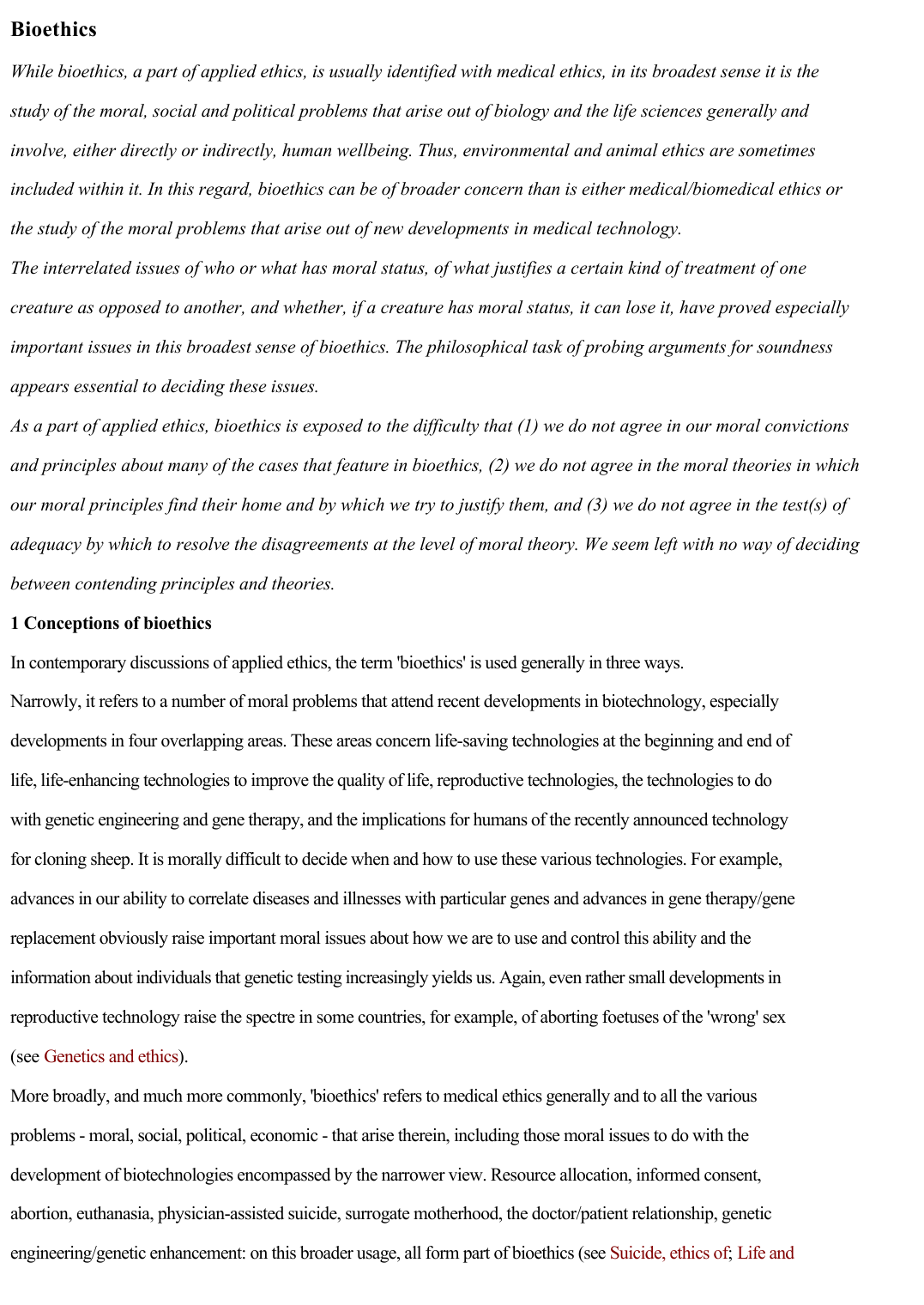Bioethics
Publié le 16/05/2020

Extrait du document
«
Bioethics
While bioethics, a part of applied ethics, is usually identified with medical ethics, in its broadest sense it is the
study of the moral, social and political problems that arise out of biology and the life sciences generally and
involve, either directly or indirectly, human wellbeing.
Thus, environmental and animal ethics are sometimes
included within it.
In this regard, bioethics can be of broader concern than is either medical/biomedical ethics or
the study of the moral problems that arise out of new developments in medical technology.
The interrelated issues of who or what has moral status, of what justifies a certain kind of treatment of one
creature as opposed to another, and whether, if a creature has moral status, it can lose it, have proved especially
important issues in this broadest sense of bioethics.
The philosophical task of probing arguments for soundness
appears essential to deciding these issues.
As a part of applied ethics, bioethics is exposed to the difficulty that (1) we do not agree in our moral convictions
and principles about many of the cases that feature in bioethics, (2) we do not agree in the moral theories in which
our moral principles find their home and by which we try to justify them, and (3) we do not agree in the test(s) of
adequacy by which to resolve the disagreements at the level of moral theory.
We seem left with no way of deciding
between contending principles and theories.
1 Conceptions of bioethics
In contemporary discussions of applied ethics, the term 'bioethics' is used generally in three ways.
Narrowly, it refers to a number of moral problems that attend recent developments in biotechnology, especially
developments in four overlapping areas.
These areas concern life-saving technologies at the beginning and end of
life, life-enhancing technologies to improve the quality of life, reproductive technologies, the technologies to do
with genetic engineering and gene therapy, and the implications for humans of the recently announced technology
for cloning sheep.
It is morally difficult to decide when and how to use these various technologies.
For example,
advances in our ability to correlate diseases and illnesses with particular genes and advances in gene therapy/gene
replacement obviously raise important moral issues about how we are to use and control this ability and the
information about individuals that genetic testing increasingly yields us.
Again, even rather small developments in
reproductive technology raise the spectre in some countries, for example, of aborting foetuses of the 'wrong' sex
(see Genetics and ethics ).
More broadly, and much more commonly, 'bioethics' refers to medical ethics generally and to all the various
problems - moral, social, political, economic - that arise therein, including those moral issues to do with the
development of biotechnologies encompassed by the narrower view.
Resource allocation, informed consent,
abortion, euthanasia, physician-assisted suicide, surrogate motherhood, the doctor/patient relationship, genetic
engineering/genetic enhancement: on this broader usage, all form part of bioethics (see Suicide, ethics of ; Life and.
»
↓↓↓ APERÇU DU DOCUMENT ↓↓↓


